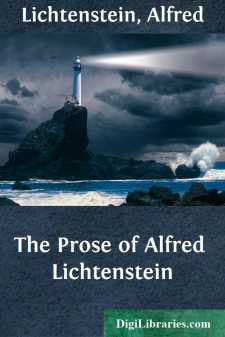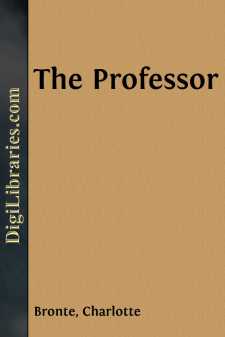Fiction
- Action & Adventure 180
- Biographical 15
- Christian 59
- Classics
- Coming of Age 5
- Contemporary Women 3
- Erotica 8
- Espionage/Intrigue 12
- Fairy Tales, Folklore & Mythology 236
- Family Life 169
- Fantasy 117
- Gay 1
- General 596
- Ghost 32
- Historical 808
- Horror 43
- Humorous 160
- Jewish 25
- Legal 4
- Medical 22
- Mystery & Detective 315
- Political 49
- Psychological 41
- Religious 64
- Romance 159
- Sagas 11
- Science Fiction 730
- Sea Stories 113
- Short Stories (single author) 537
- Sports 10
- Suspense 1
- Technological 8
- Thrillers 2
- Urban Life 31
- Visionary & Metaphysical 1
- War & Military 173
- Westerns 199
Classics Books
Sort by:
by:
Jonathan Swift
LETTER I. TO THE SHOP-KEEPERS, TRADESMEN, FARMERS, AND COMMON-PEOPLE OF IRELAND. NOTE About the year 1720 it was generally acknowledged in Ireland that there was a want there of the small change, necessary in the transaction of petty dealings with shopkeepers and tradesmen. It has been indignantly denied by contemporary writers that this small change meant copper coins. They asserted that there was no...
more...
by:
Jonathan Swift
In the "foreword" to the reprint of this tract in the "Miscellanies" of 1711, Swift remarks: "I have been assured that the suspicion which the supposed author lay under for writing this letter absolutely ruined him with the late ministry." The "late ministry" was the Whig ministry of which Godolphin was the Premier. To this ministry the repeal of the Test Act was a...
more...
The Winner Max Mechenmal was an independent manager of a newspaper kiosk. He ate and drank well; he had relations with many women, but he was careful. Because his salary was insufficient, he occasionally permitted himself to take money from Ilka Leipke. Ilka Leipke was an unusually small, but well-developed, elegant whore, who attracted many men and women with her bizarre nature and apparently silly...
more...
by:
Sara D. Jenkins
CHAPTER I. In all the border country that lies between England and Scotland, no castle stands more fair than Norham. Fast by its rock-ribbed walls flows the noble Tweed, and on its battled towers frown the hills of Cheviot. Day was dying, St. George's banner, broad and gay, hung in the evening breeze that scarce had power to wave it o'er the keep. Warriors on the turrets were moving across...
more...
by:
John McGreevey
Joey Barrett set his camera carefully to one side and swung onto the edge of the desk. He knew this annoyed Nugent, and, at the moment, nothing gave him greater satisfaction than his ability to irritate the editor. His heels thunked against the highly polished sides of the desk, and he shook his head very deliberately, in rhythm with the heel-hammering. "No," he said. "I don't think...
more...
CHAPTER I. THE WAGER The balcony of the palais Greifmann contains three persons who together represent four million florins. It is not often that one sees a group of this kind. The youthful landholder, Seraphin Gerlach, is possessor of two millions. His is a quiet disposition; very calm, and habitually thoughtful; innocence looks from his clear eye upon the world; physically, he is a man of...
more...
by:
Charlotte Bronte
CHAPTER I. INTRODUCTORY. THE other day, in looking over my papers, I found in my desk the following copy of a letter, sent by me a year since to an old school acquaintance:вÐâ"DEAR CHARLES,"I think when you and I were at Eton together, we were neither of us what could be called popular characters: you were a sarcastic, observant, shrewd, cold-blooded creature; my own portrait I will...
more...
by:
Mary C.E. Wemyss
Chapter I A boy's profession is not infrequently chosen for him by his parents, which perhaps accounts for the curious fact that the shrewd, business-like member of a family often becomes a painter, while the artistic, unpractical one becomes a member of the Stock Exchange, in course of time, naturally. My profession was forced upon me, to begin with, by my sisters-in-law, and in the subsequent...
more...
by:
Vaughan Kester
CHAPTER I. THE BOY AT THE BARONY The Quintards had not prospered on the barren lands of the pine woods whither they had emigrated to escape the malaria of the low coast, but this no longer mattered, for the last of his name and race, old General Quintard, was dead in the great house his father had built almost a century before and the thin acres of the Barony, where he had made his last stand against...
more...
INTRODUCTORY In one of the cable tramway cars which, at a reverential pace, perambulate the city of Edinburgh, two citizens conversed. The winds without blew gustily and filled the air with sounds like a stream in flood, the traffic clattered noisily over the causeway, the car itself thrummed and rattled; but the voices of the two were hushed. Said the one— "It's the most extraordinary thing...
more...











